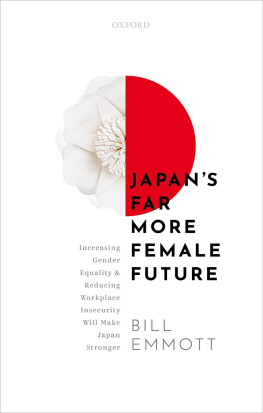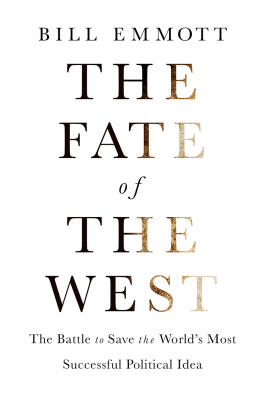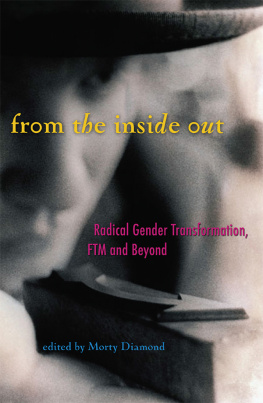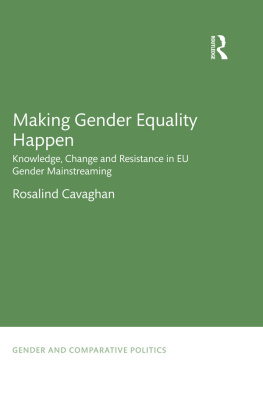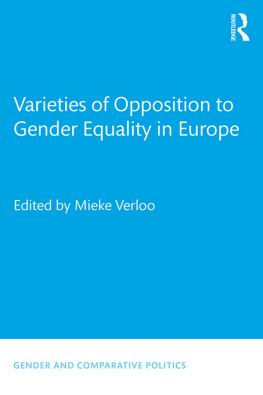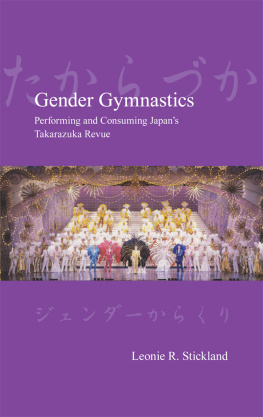Bill Emmott - Japans Far More Female Future: Increasing Gender Equality and Reducing Workplace Insecurity Will Make Japan Stronger
Here you can read online Bill Emmott - Japans Far More Female Future: Increasing Gender Equality and Reducing Workplace Insecurity Will Make Japan Stronger full text of the book (entire story) in english for free. Download pdf and epub, get meaning, cover and reviews about this ebook. year: 2020, publisher: OUP Oxford, genre: Politics. Description of the work, (preface) as well as reviews are available. Best literature library LitArk.com created for fans of good reading and offers a wide selection of genres:
Romance novel
Science fiction
Adventure
Detective
Science
History
Home and family
Prose
Art
Politics
Computer
Non-fiction
Religion
Business
Children
Humor
Choose a favorite category and find really read worthwhile books. Enjoy immersion in the world of imagination, feel the emotions of the characters or learn something new for yourself, make an fascinating discovery.
- Book:Japans Far More Female Future: Increasing Gender Equality and Reducing Workplace Insecurity Will Make Japan Stronger
- Author:
- Publisher:OUP Oxford
- Genre:
- Year:2020
- Rating:5 / 5
- Favourites:Add to favourites
- Your mark:
- 100
- 1
- 2
- 3
- 4
- 5
Japans Far More Female Future: Increasing Gender Equality and Reducing Workplace Insecurity Will Make Japan Stronger: summary, description and annotation
We offer to read an annotation, description, summary or preface (depends on what the author of the book "Japans Far More Female Future: Increasing Gender Equality and Reducing Workplace Insecurity Will Make Japan Stronger" wrote himself). If you haven't found the necessary information about the book — write in the comments, we will try to find it.
Bill Emmott: author's other books
Who wrote Japans Far More Female Future: Increasing Gender Equality and Reducing Workplace Insecurity Will Make Japan Stronger? Find out the surname, the name of the author of the book and a list of all author's works by series.
Japans Far More Female Future: Increasing Gender Equality and Reducing Workplace Insecurity Will Make Japan Stronger — read online for free the complete book (whole text) full work
Below is the text of the book, divided by pages. System saving the place of the last page read, allows you to conveniently read the book "Japans Far More Female Future: Increasing Gender Equality and Reducing Workplace Insecurity Will Make Japan Stronger" online for free, without having to search again every time where you left off. Put a bookmark, and you can go to the page where you finished reading at any time.
Font size:
Interval:
Bookmark:


Great Clarendon Street, Oxford, OX2 6DP, United Kingdom
Oxford University Press is a department of the University of Oxford. It furthers the Universitys objective of excellence in research, scholarship, and education by publishing worldwide. Oxford is a registered trade mark of Oxford University Press in the UK and in certain other countries
Bill Emmott 2020
The moral rights of the author have been asserted
First Edition published in 2020
Impression: 1
All rights reserved. No part of this publication may be reproduced, stored in a retrieval system, or transmitted, in any form or by any means, without the prior permission in writing of Oxford University Press, or as expressly permitted by law, by licence or under terms agreed with the appropriate reprographics rights organization. Enquiries concerning reproduction outside the scope of the above should be sent to the Rights Department, Oxford University Press, at the address above
You must not circulate this work in any other form and you must impose this same condition on any acquirer
Published in the United States of America by Oxford University Press
198 Madison Avenue, New York, NY 10016, United States of America
British Library Cataloguing in Publication Data
Data available
Library of Congress Control Number: 2020937782
ISBN 9780198865551
ebook ISBN 9780192634986
Printed and bound in Great Britain by
Clays Ltd, Elcograf S.p.A.
Links to third party websites are provided by Oxford in good faith and for information only. Oxford disclaims any responsibility for the materials contained in any third party website referenced in this work.
When Japan hosted its first Olympic Games, in 1964, the opening ceremony encompassed an important but subtle piece of symbolism. The Olympic flame was carried up its last 160 steps by a 19-year-old student called Sakai Yoshinori who had been born, near Hiroshima, on the very day the atomic bomb was dropped, 6 August 1945. Atomic Boy, as he became known, bore twin messages: that Japan had been a victim of an unbelievable horror; and that the once-defeated nation had now been reborn as a modern, democratic state.
For Japans second Olympic Games, originally scheduled for fifty-six years later in 2020, that sort of political symbolism was no longer needed. No one but a few Chinese or North Korean propagandists can any longer doubt that modern Japan is a peaceful, law-abiding democracy. The fact that the global Covid-19 pandemic sadly forced the Games to be postponed by a year means that we will have to wait longer to know who has acted as Sakai-sans for the opening ceremony, the Tokyo 2020 Organising Committee stated the following: When people look back on the Tokyo 2020 Games in 50 or 100 years time, the Games should be seen to have been a catalyst for change in culture, society and values leading to the realisation of a more sustainable, spiritually richer, happier society.
To represent Japanese society today, one potential choice could have been that of a centenarian, even if in that case it might be necessary to replace the steps up to the Olympic urn with an escalator. A centenarian would have been apt even for this celebration of youth and vigour because such a person would have represented the vast demographic change that has taken place in Japan since 1964, which has turned it from what was then a young country into what is today the worlds oldest society, one featuring more than 70,000 people of over 100 years of age. Take the artist Shinoda Toko, who features in and celebrated her 107th birthday in March 2020. Like anyone of that age, she bridges the half century between the two Tokyo Games: she was even commissioned to produce an artwork for one of the rooms of the National Stadium that was used in the 1964 Games and she is still producing art to this day.
Yet to be a catalyst for change in culture, society and values is a somewhat different aspiration from simply representing todays Japan. The enthusiastic and positive reception given to the national team for the 2019 Rugby World Cup, with its mixture of native Japanese and immigrant players and its mixed-race captain, Michael Leitch, of the 1964 Games, Tokyo Olympiad, considered something of an epic, was directed by Ichikawa Kon.
Admittedly, two of the cities that played a leading role as venues for the Rugby World Cup and will eventually do so again for the Olympics, Tokyo and Yokohama, are already presided over by women: Koike Yuriko, the Governor of Tokyo, and Hayashi Fumiko, the Mayor of Yokohama (both featured in ). They however are exceptions in a political world still heavily dominated by men. But society as a whole is changing, with the number of women taking up prominent positions rising steadily, if from a low base, and with new generations of young women emerging who have at last benefited from university educations in almost equal numbers to their male contemporaries. Those new generations are setting off to forge lives that are likely to be completely different to those of their mothers or grandmothers and will have a much more apparent impact on their country and all its many activities and characteristics than their forebears were able to have. Japans future will be far more female than its past, so it would be highly pertinent to reflect that future in the choice of final torchbearer, which would also be a forward-looking sign of confidence and optimism about the countrys recovery from the severe economic effects of the pandemic.
That future truly will be very different from the past. Throughout my nearly forty years of writing about Japan, it has been normal and often fruitful for outsiders to look at the country as a pioneer, a place from which lessons can be learned for the rest of the world. During the 1960s this was true of the countrys rapid economic development and modernization, during the 1970s of the countrys environmental clean-up and rapid adjustment to greater energy efficiency, during the 1980s of the countrys excellent use of (male) human capital to develop, implement, and exploit the new technologies of the time, while during the 1990s the principal lessons came to be of how to maintain social cohesion even while making a thorough and unfortunate mess of dealing with what at that date had been the worst financial crash experienced by an advanced economy since 1929. Even so, twenty years later when Europeans and Americans were grappling with their own financial disaster, they again looked to Japan for lessons on how to prevent a drama from turning into a catastrophe. One aspect of social and economic development in which Japan has never been a pioneer, however, has been that of gender equality, for it has consistently been a laggard in terms of providing freer choices and more equal rights and opportunities to the female half of the population. And it remains a laggard today.
This matters greatly. One of the most frequent questions posed to someone who, like me, offers themselves as a political economist studying Japan, concerns what the future will hold for such an ageing society, with its population dropping by half a million each year. Given the title of one of my previous books, the question is often posed in the following form: Will the sun rise again for Japan in the 2020s, or will it set? The truth of course is that we cannot know the future, even though economists have arguably created a rod for their own backs by inventing the practice of economic forecasting. Looking at Japan today, however, that question about the future can best be responded to by posing a question in return: If you were to be able to tell me whether or how rapidly women will achieve in Japan the sort of role in terms of work and of political, intellectual, and organizational leadership that they have already achieved in most West European and North American countries, then I would have a better idea of Japans overall future and of the brightness and warmth of that symbolic or metaphorical sun.
Font size:
Interval:
Bookmark:
Similar books «Japans Far More Female Future: Increasing Gender Equality and Reducing Workplace Insecurity Will Make Japan Stronger»
Look at similar books to Japans Far More Female Future: Increasing Gender Equality and Reducing Workplace Insecurity Will Make Japan Stronger. We have selected literature similar in name and meaning in the hope of providing readers with more options to find new, interesting, not yet read works.
Discussion, reviews of the book Japans Far More Female Future: Increasing Gender Equality and Reducing Workplace Insecurity Will Make Japan Stronger and just readers' own opinions. Leave your comments, write what you think about the work, its meaning or the main characters. Specify what exactly you liked and what you didn't like, and why you think so.

